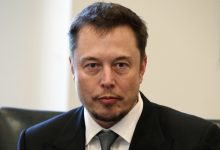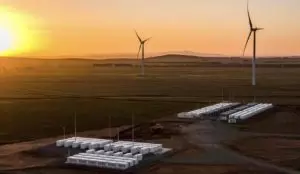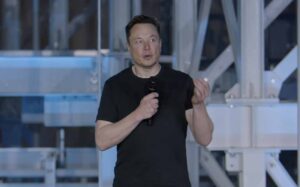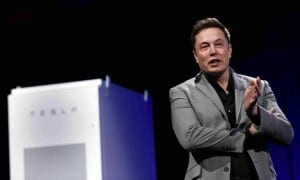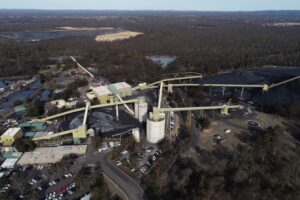Tesla shareholders, Tesla fans, and Tesla customers all breathed a sigh of relief this week when it announced that founder and CEO Elon Musk had reached a settlement with US regulators.
The deal with the powerful Securities and Exchange Commission, will require Musk to stand down as chairman, and cede sovereignty over his Twitter activities, and for both Tesla and Musk to pay $US20 million fines.
But the key outcome is that Musk gets to continue as CEO, and in the role that as the visionary, evangelist and, well, the driver and inspiration to develop new products, new strategies and plot the end of the fossil fuel era.
The relief was best visible on the Nasdaq stock market, where Tesla is listed. Its shares rebounded 17 per cent on Monday in the US to rebound to around $US310 a share, returning the company to a $US53 billion plus ($A73 billion) valuation, and no doubt causing rage among its critics and short sellers.
“That was fast,” noted analysts at Morgan Stanley of the SEC settlement, just two days after the regulator charged the CEO with fraud and sought his removal from executive functions.
“The resolution over the weekend significantly reduces the risk of spillover effects on capital markets, company morale, and brand value,” the Morgan Stanley analysts added.
It’s not a bad outcome for Musk and Tesla, considering the potential implications of his August 7 tweet, where Musk said he was considering taking the company private, at $US420 a share, and had “funding secured.”
It was these two last words that got him into trouble, with the SEC laying charges of securities fraud, and alleging that he had not had any serious discussions about funding at all.
Musk’s tweets and the idea of taking the company private was clearly aimed at the “short-sellers” who have made Tesla the most targeted stock on the US market, and created an industry in social media campaigns against the company and Musk himself.
That is borne from a multiple reasons – greed is one, but the most common thread seems to be from those who have a lot to lose if Musk does deliver on his plan to rid the global economy of fossil fuels.
He plans to do that by using renewables, and particularly solar, to power the world, balanced and stored in batteries, like his Tesla Powerwalls and the Tesla big battery in South Australia, along with other forms of storage, and electric vehicles replacing the internal combustion engine for cars, buses and trucks.
Musk has long maintained his goal is to rid the world of fossil fuels, and repeated that in his recent web interviewthat recently created controversy because he smoked a joint live on air (which in California is legal, even if it is not common behaviour for CEOs of $50 billion companies).
“It is important we accelerate the transition to sustainable energy,” Musk said. “We are playing a crazy game with the atmosphere and the oceans.:
“We are going to run out of oil in the long term. We must have sustainable energy transports in the long term. Why run this crazy experiment where we take trillions of tonnes from underground and put it into the atmosphere.
” It’s the dumbest experiment in human history … it’s very difficult to put that carbon back into the ground.”
Musk noted that with 2.5 billion cars and trucks in the world, it would still take 20 years to transition even if every vehicle sold from now on was electric, and moving to push that forward with subsidies and incentives was no bad idea.
“There is an inherent subsidy in any oil burning device, any power plant or car that is fundamentally consuming the carbon capacity of the oceans and atmosphere.”
Musk and Tesla have already changed the perception of electric vehicles by making them fast and longer range. The challenge now is to make them cheaper, by scaling up production and bringing the upfront cost down to that of petrol and diesel cars,
Tesla’s own ability to further accelerate that transition will be tested in coming months by the success of the company’s Tesla 3 deliveries this last quarter and the current one just started.
If the company can meet targets, it will likely generate enough cash flow and profits that will underpin the company’s future growth – without needing to go to the market for more funds any time soon.
And the corporate governance changes imposed by the SEC deal – a new chairman, for instance, will help the company re-position and should facilitate any further capital raisings if needed.
The board includes includes James Murdoch, son of Rupert, and an Australian businesswoman, Robyn Denholm, who is being touted as a possible successor to Musk as chair of the board.
Denholm is CFO at Telstra, and has been audit committee chairwoman at Tesla.
The extraordinary support for Musk and the Tesla brand is underlined by the company’s huge valuation – which is very much a bet on the future – and the extraordinary reports this past week or so o Tesla enthusiasts volunteering to help Tesla make the deliveries needed to reach its targets.
The Tesla board, needless to say, is behind Musk.,
“Tesla and the board of directors are fully confident in Elon, his integrity, and his leadership of the company, which has resulted in the most successful US auto company in over a century,” it said in a statement before the settlement with the SEC was reached.
“Our focus remains on the continued ramp of Model 3 production and delivering for our customers, shareholders and employees.”
We’ll just have to expect fewer tweets.
Sign up to our regular EV newsletter here. It’s free!

